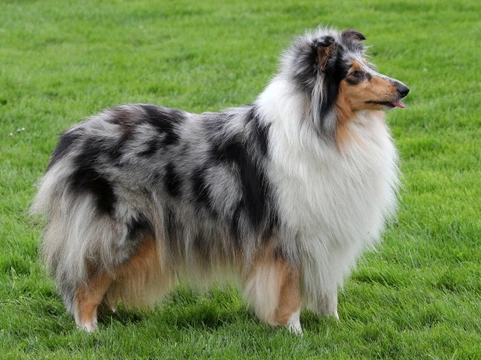
Canine Cyclic Neutropenia (CCN) in Rough and Smooth Collies
Canine cyclic neutropenia or CCN affects two breeds namely the Rough and Smooth Collie. The condition is also often referred to as Cyclic Haematopoiesis or Grey Collie Syndrome because it is associated with a dog’s coat colour. The disease is what is known as a recessive stem cell condition and affected puppies have much lighter coats than their merle coated littermates.
The condition explained
The disorder negatively impacts a dog’s neutrophils, which are an essential part of their immune system. Collies whether Rough or Smooth, have a sharp drop in the number of neutrophils that circulate in their bloodstream every ten to twelve days which negative impacts their immune system and as a result, they are very susceptible to developing an infection.
Symptoms associated with the condition
Dogs that have developed the disorder show signs of there being something wrong with them which includes the following symptoms:
- Diarrhoea
- Fever
- Pain in their joints
- Eye infections
- Respiration infections
- Skin infections
- Anaemia
- Pneumonia
- Liver failure
- Kidney failure
Some Collies can experience bleeding episodes too.
Diagnosing the condition
A vet would need to have a dog’s full medical history and examine a dog’s coat. Puppies with the condition would be smaller than their litter mates having not grown as well during the first few weeks of their lives. The tests a vet would typically want to carry out to confirm their preliminary diagnosis are as follows:
- A full blood count – this would measure any cyclic fluctuations that occur in a dog’s blood cell count which includes the level of neutrophils present
- Excessive blood nitrogen levels would be an indication of a dog suffering from anaemia
A vet would want to carry out a blood count on a dog suspected of suffering from the condition every 14 days.
Treatment options
Smooth and Rough Collies diagnosed as suffering from Canine cyclic neutropenia need a lot of supportive care. A vet would typically prescribe a course of antibiotics when a dog is experiencing an episode when their neutrophils fall too low.
Puppies that have inherited the condition generally die before they are 6 months old if they are not given the correct treatment because they are susceptible to all sorts of infections. Should a dog be suffering from a severe case of anaemia, they would need to be given blood transfusions. Other treatment options include the following:
- Gene therapy
- Bone marrow transplant – a treatment that is often too expensive to be carried out
Prognosis
Sadly, even with all the treatment and supportive care a dog can be given, many succumb before the age of 2 or 3 years old which is mainly due to total organ failure and the fact their immune systems are so negatively impacted.
Testing for the condition
Rough and Smooth Collies must be DNA tested for the condition which is the only way of identifying if they are affected or carriers. Any dog suspected or diagnosed as suffering from the condition should be spayed or neutered to prevent accidental matings and should not be used in a breeding programme, bearing in mind that the mode of inheritance is an autosomal recessive one. In short, a dog would need to have inherited 2 copies of the mutated gene from both parent dogs. With this said, a dog that’s a “carrier” can be mated to a Collie that has tested clear without risking passing the disorder onto their offspring. However, any puppies produced must be tested before being used in a breeding programme to establish whether they are “carriers” or “normal”.



